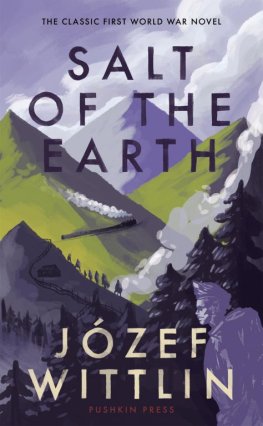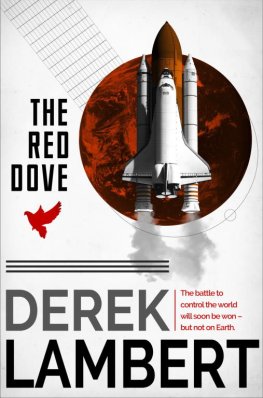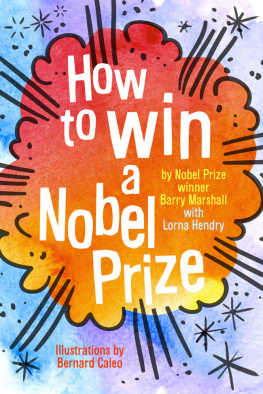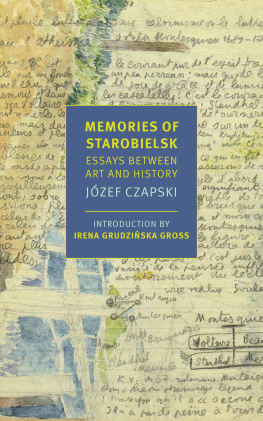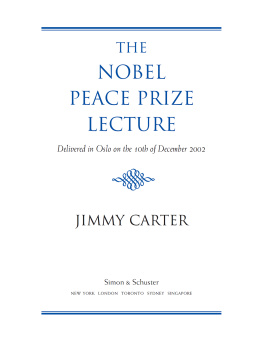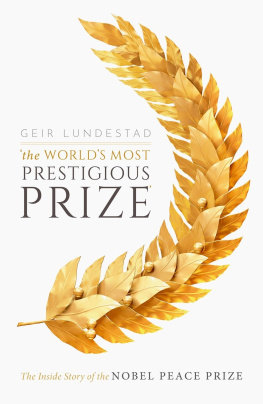Józef Wittlin - Salt of the Earth
Here you can read online Józef Wittlin - Salt of the Earth full text of the book (entire story) in english for free. Download pdf and epub, get meaning, cover and reviews about this ebook. City: London, year: 2018, publisher: Pushkin Press, genre: Prose. Description of the work, (preface) as well as reviews are available. Best literature library LitArk.com created for fans of good reading and offers a wide selection of genres:
Romance novel
Science fiction
Adventure
Detective
Science
History
Home and family
Prose
Art
Politics
Computer
Non-fiction
Religion
Business
Children
Humor
Choose a favorite category and find really read worthwhile books. Enjoy immersion in the world of imagination, feel the emotions of the characters or learn something new for yourself, make an fascinating discovery.
- Book:Salt of the Earth
- Author:
- Publisher:Pushkin Press
- Genre:
- Year:2018
- City:London
- ISBN:978-1-78227-471-1
- Rating:5 / 5
- Favourites:Add to favourites
- Your mark:
- 100
- 1
- 2
- 3
- 4
- 5
Salt of the Earth: summary, description and annotation
We offer to read an annotation, description, summary or preface (depends on what the author of the book "Salt of the Earth" wrote himself). If you haven't found the necessary information about the book — write in the comments, we will try to find it.
Salt of the Earth — read online for free the complete book (whole text) full work
Below is the text of the book, divided by pages. System saving the place of the last page read, allows you to conveniently read the book "Salt of the Earth" online for free, without having to search again every time where you left off. Put a bookmark, and you can go to the page where you finished reading at any time.
Font size:
Interval:
Bookmark:
Jzef Wittlin
THE SALT OF THE EARTH
Translated from the Polish by Patrick John Corness
Ye are the salt of the earth: but if the salt have lost his savour, wherewith shall it be salted? It is thenceforth good for nothing, but to be cast out, and to be trodden under foot of men.
MATTHEW 5:13Foreword
Jzef Wittlin came into my life by chance. When I was invited to travel to the Ukrainian city of Lviv to deliver a lecture, a colleague in Warsaw sent me a photocopy of Mj Lww, a slim volume published in Polish in 1946. The author, an migr poet, born in 1896 in the small Polish village of Dmytrw, reached the United States in his forty-sixth year. I did not speak Polish, but appreciated the grainy black-and-white photographs of buildings. They seemed significant to Wittlin. I wandered around the city in search of the monuments that touched him, a fine introduction to a city that melded pre-war Austro-Hungarian and interwar Polish style.
By the time of my second visit to Lviv a year later, I obtained a Spanish translation of Wittlins book, published with the assistance of his daughter Elizabeth, who lives in Madrid. My understanding of Spanish is bare, but with the help of a friend from Barcelona I was able to appreciate the magical quality of Wittlins lyrical prose. His words brought to life a world that was lost yet deeply present. Reassuring, full of life and energy and hope even during the dark periods from which he emerged, Wittlin opened up the imagination, helped me to feel what it might have been like to occupy those spaces at the time he walked them. He brought the past alive, and made it even more relevant.
I wanted more Jzef Wittlin. Eventually, I found a copy of his only published novel, to which he gave the title Sl ziemi, or The Salt of the Earth. Inspired in part by Homers Odyssey, which Wittlin had translated into Polish in 1924 and for which he was honoured by the Polish PEN Club, the novel was first published in Polish in 1935, to considerable acclaim. A German edition appeared a year later, with a preface by Josef Roth. He finds out through the loss of his soul, wrote Roth, that there is something mightier than the emperor and even death. More translations followedFrench in 1939, English in 1941. The book won awards, and led to Wittlins being nominated for the Nobel Prize in 1939, the year in which the war that defined the essence of the poets being was resumed.
The novel was intended as the first volume of a trilogy entitled The Saga of the Patient Foot Soldier, but the drafts of the two other volumes were lost in the small French seaside town of St Jean de Luz on 22nd June 1940, when a soldier threw one of his suitcases into the sea. Only the first section of the second book, Healthy Death, survives, and is included at the end of this edition. The main protagonist is a railwayman, Piotr Niewiadomski, Peter Incognito, a lowly worker on the LwwCzerniowceIckany line. The inhabitant of a small village in the Carpathian mountains in Eastern Galicia, a Catholic, son of a Hutsul mother and a Polish father, like millions of others he is summoned to war by Emperor Franz Joseph, into the Austro-Hungarian Army, to defend the Empire. He did not always comprehend this tragedy, Wittlin wrote of him in an essay. He did not always know what he was fighting for or for what he was dying. Through the eyes of this exceptional being, a filter perhaps for Wittlins own experiences and assessment, we come to a sense of war.
Plucked out of a simple life, Piotr Niewiadomski is thrust into a heaving, anonymous mass, fellow conscriptsPoles, Hungarians, Jews, Rumanians, Bosnians and otherswho made up the Empire:
Sweaty, breathless, drunken numbers of heads, arms, legs and torsos flow like lava towards the east and the south, from east to west, from south to north, to satisfy someones ambitions, to someones greater glory. Healthy, strong lungs, hearts and stomachs set off in their thousands, tens of thousands, hundreds of thousands, to all corners of the earth to a tournament of their own suffering, hunger and fever.
The organizing, unifying force the Emperorand his world of absurdity and liesis the anvil on which the fear that grips these young men is hammered out, as they prepare for war and death:
Until then, fear had been something external; now it settled within them. It penetrated into their bodies from the coarse fibres of the uniforms. They all felt that this fragrant apparel smelling of malt consigned them to death. A miracle had occurred; this undrilled crowd had been overtaken by Discipline. It crept into their bones, mingling with the marrow and stiffening their movements. It even altered their voices.
Wittlin knew of what he wrote. Having attended a gymnasium school in Lww, some seventy kilometres north-east of the small town where he was born, he enrolled at the University of Vienna. The studies were interrupted by two years of service in the Austro-Hungarian Army, in its Eastern Polish Legion. Mythical and epical, Thomas Mann wrote from California in the autumn of 1941, in a letter to the author. The words were directed at the novels subject matter, but they might equally have been written for the man:
There is humour and the lyrical, extraordinary detail that allows us to begin to understand some greater truths. There is irony and pity. There is a cry against horror and absurdity. There is the focus on the individual in the group. There is a tale, simple and extraordinary, that is perhaps for our times, once again, as greater forces propel us in an increasingly unsettled direction.
Throughout his life, Wittlins daughter Elizabeth tells me, my father would always run off to the railroad station to search for a porter to speak with, so as to resuscitate Piotr Niewiadomski. Sickly and underweight, she adds, as he could not carry his own suitcases the portersthe red-capswere crucial to him.
As they should be to us. As the drums of nationalism and conflict start to beat again, amidst forces unknown that threaten to overwhelm, this poetic representation of the First World Warthis was how Wittlin characterized his novel about a little Galician porteroffers a salutary reminder. Of where we once were, to where we may return, of the power of the novel, of who we are and who is truly around us. Nothing is ever quite what it seems.
Philippe SandsBonnieux, July 2018Prologue
The black two-headed bird, the triple-crowned eagle, convulsively grips in its talons a golden apple and an unsheathed sword. What is the reason for its sudden appearance above our heads, darkening the sky with its massive black plumage? With a rustle of its wings and a clanking of its golden chains festooned with coats of arms, it escaped from the black-and-yellow sign above the tobacconists where my brother used to buy cigarettes. Like a startled cockerel, it suddenly tore itself away from the metallic shield above the entrance to the post office, just as I was sending a telegram to our village to tell my mother about the birth of my son. It abandoned the cosy, warm nests it built years ago above the doorways to the school, the courthouse and the prison. It took flight, abandoning the round red seals on baptism, marriage and death certificates. It suddenly vanished from my tattered national identity certificate, and it scarpered from the official notice imposing on me a fine of 10 crowns for jay-walking across the railway tracks. It deserted from the postmans brass buttons, the cap of the guard at the savings bank and the gendarmes helmet. Like a gigantic black-and-yellow aircraft, it is swaying overhead with the sword in its grasp.
My brother is a reader of the boulevard press. My brother is a messenger in the offices of a certain commercial company. My brother seesmy brothers seethe eagle circling in the air, menacingly wielding the heraldic sword in its claws. The keen sword glints in its sharp talons like a thunderbolt from heaven, then abruptly plunges from on high to pierce the distant heart of my mother, our old mother who works on the land, her back bent as she struggles to wrest potatoes from the earth with her hoethe last of this years crops.
Font size:
Interval:
Bookmark:
Similar books «Salt of the Earth»
Look at similar books to Salt of the Earth. We have selected literature similar in name and meaning in the hope of providing readers with more options to find new, interesting, not yet read works.
Discussion, reviews of the book Salt of the Earth and just readers' own opinions. Leave your comments, write what you think about the work, its meaning or the main characters. Specify what exactly you liked and what you didn't like, and why you think so.

